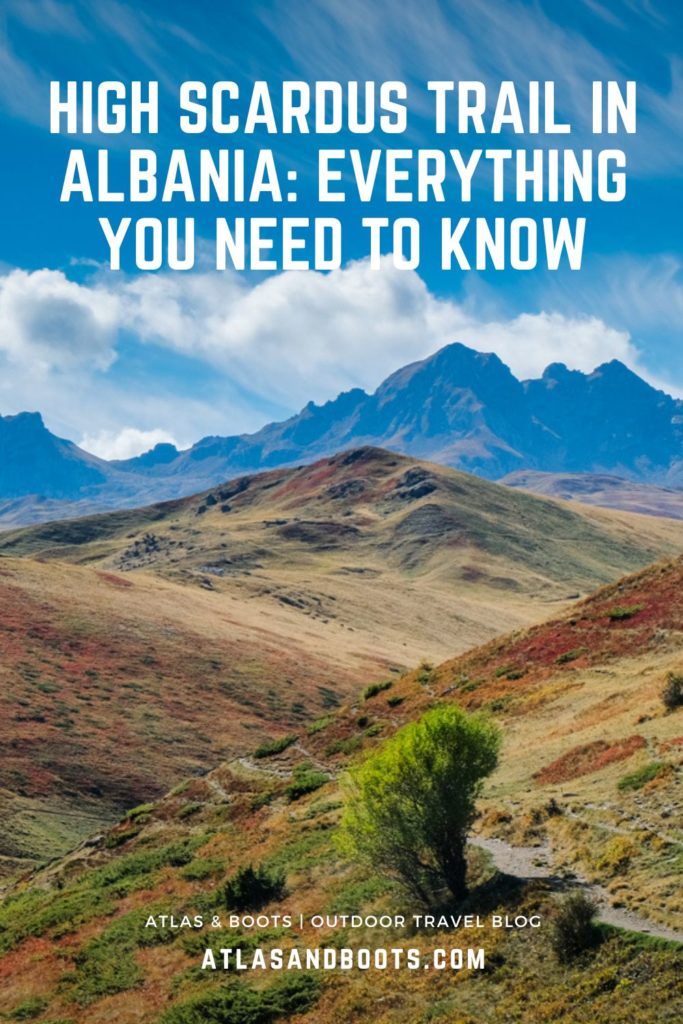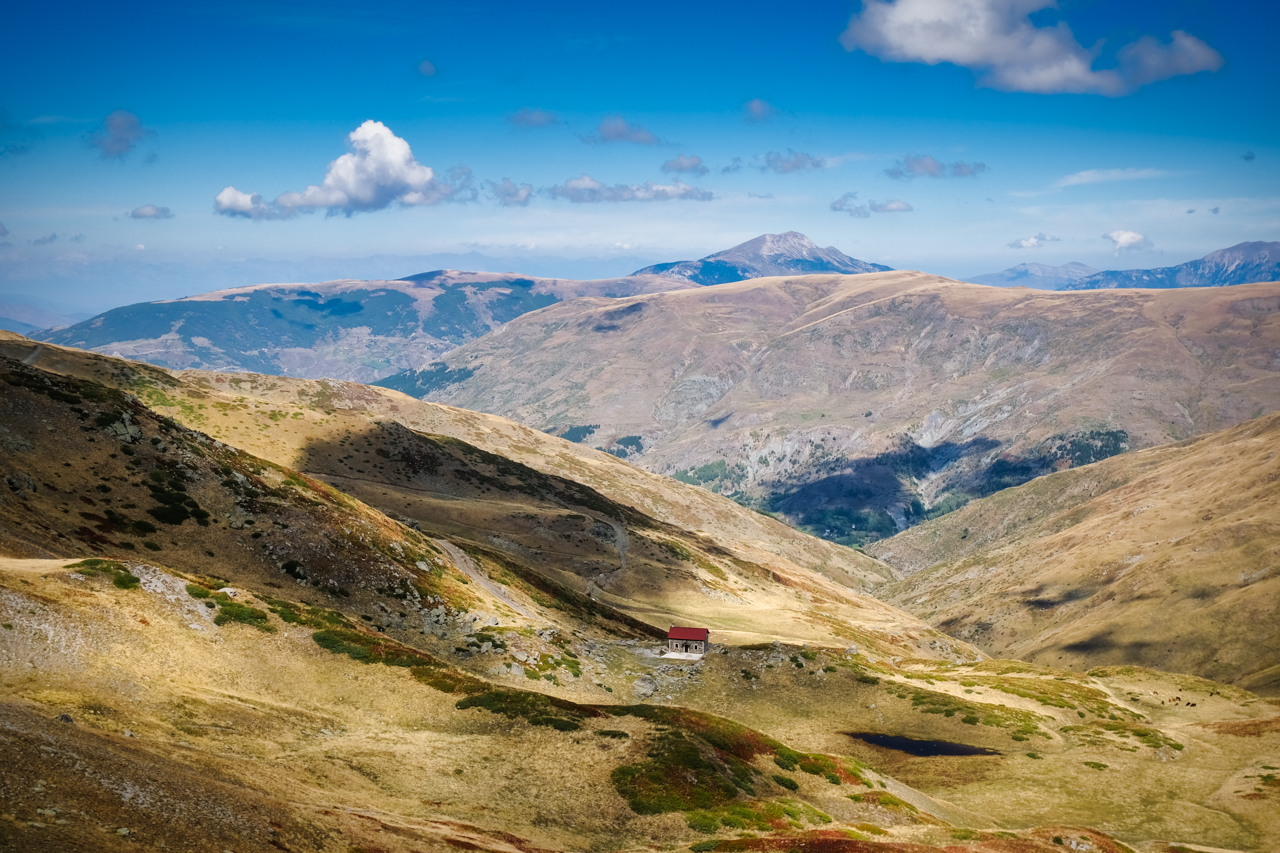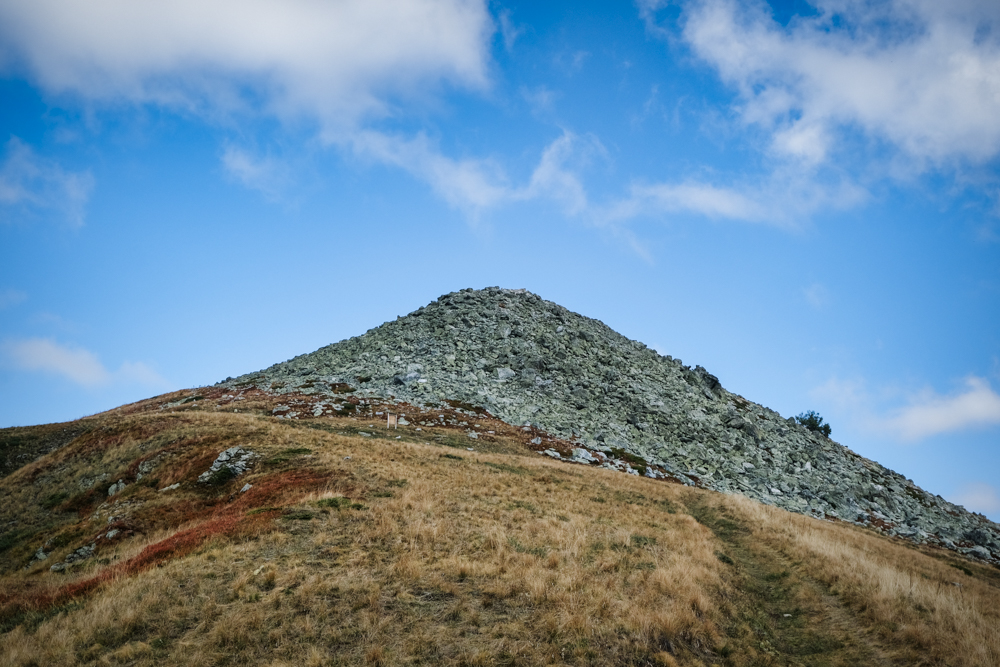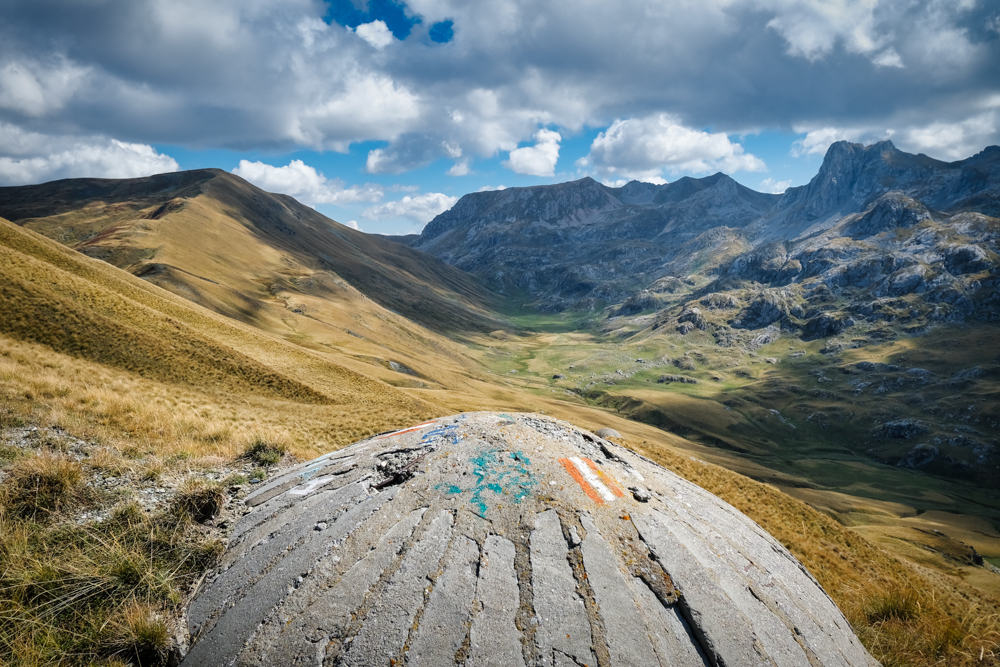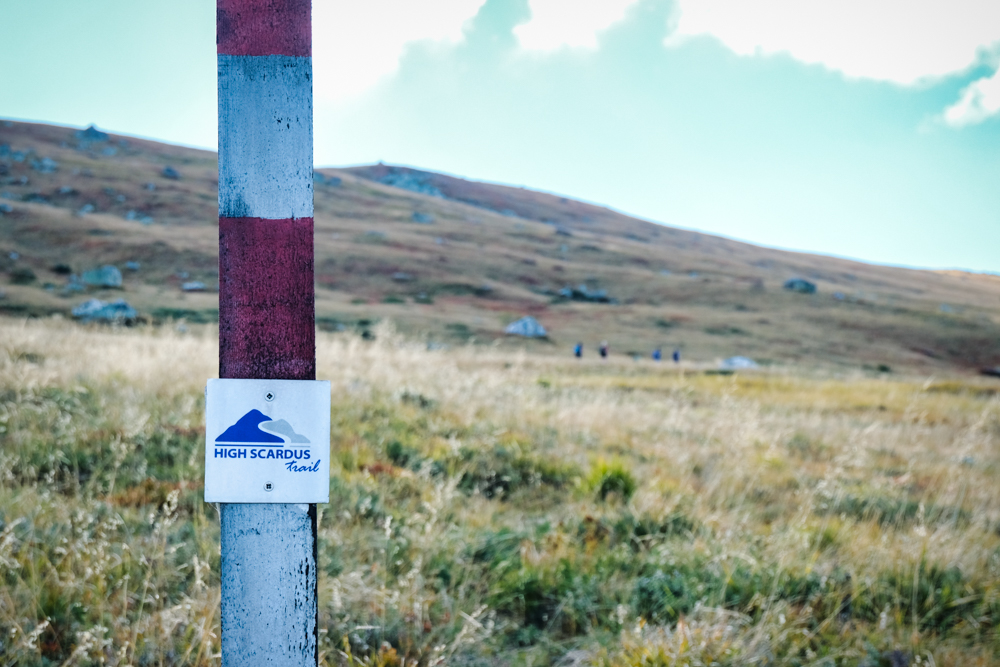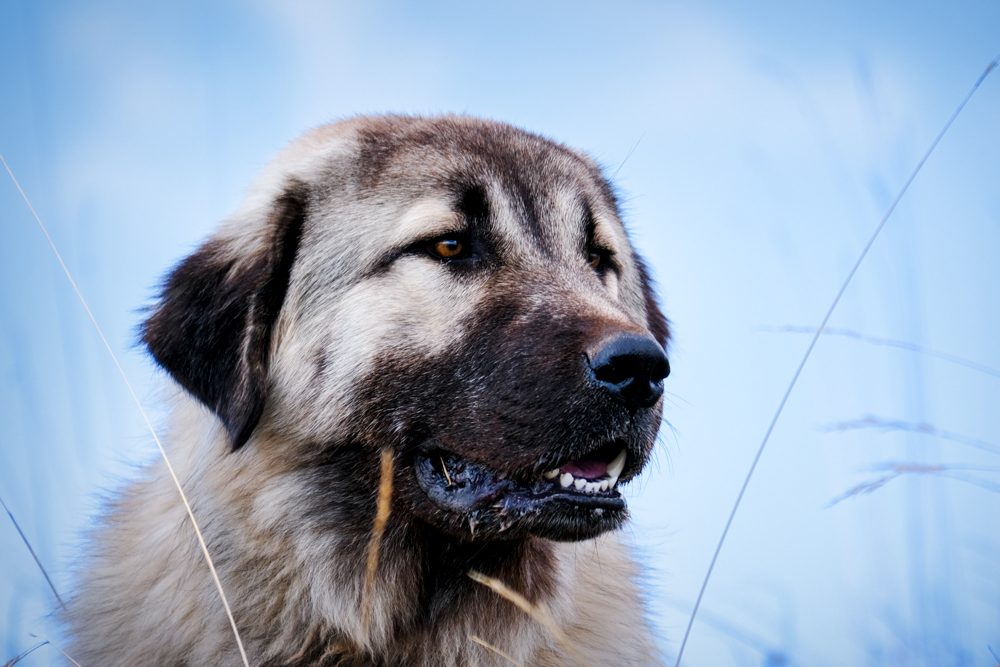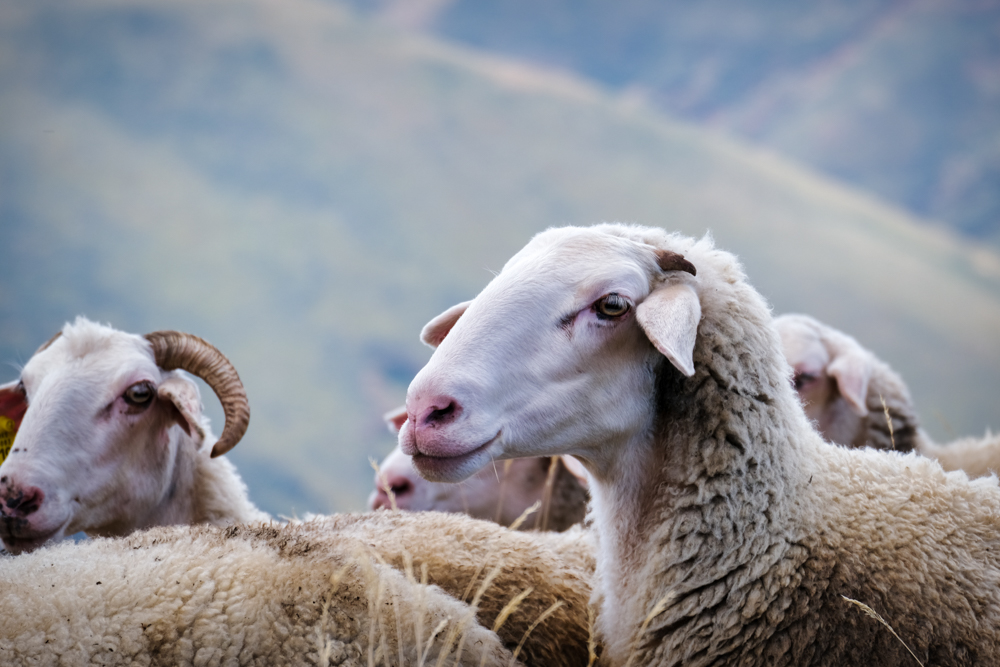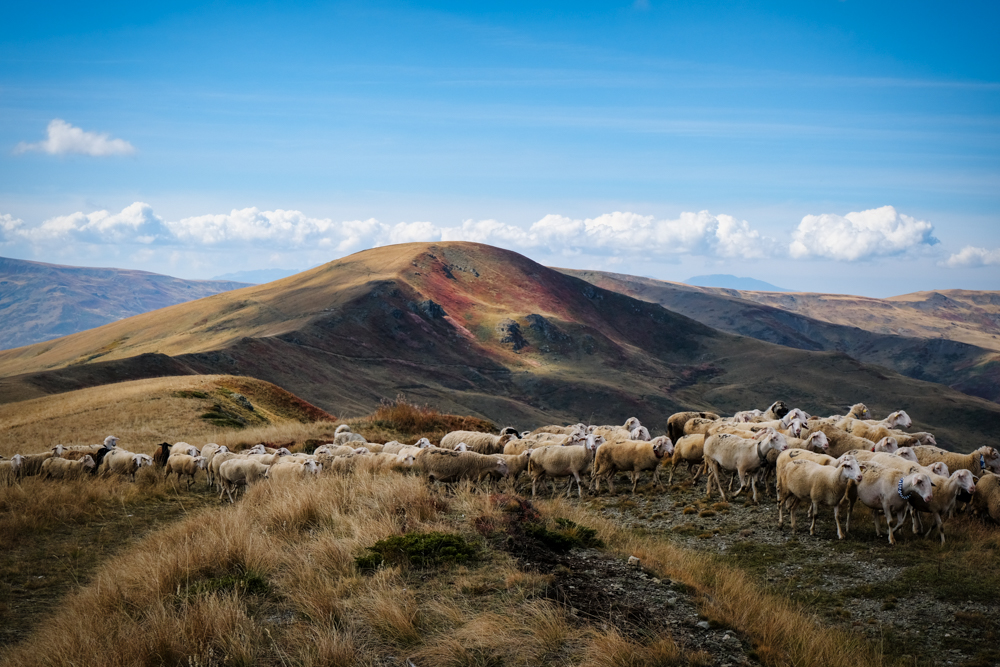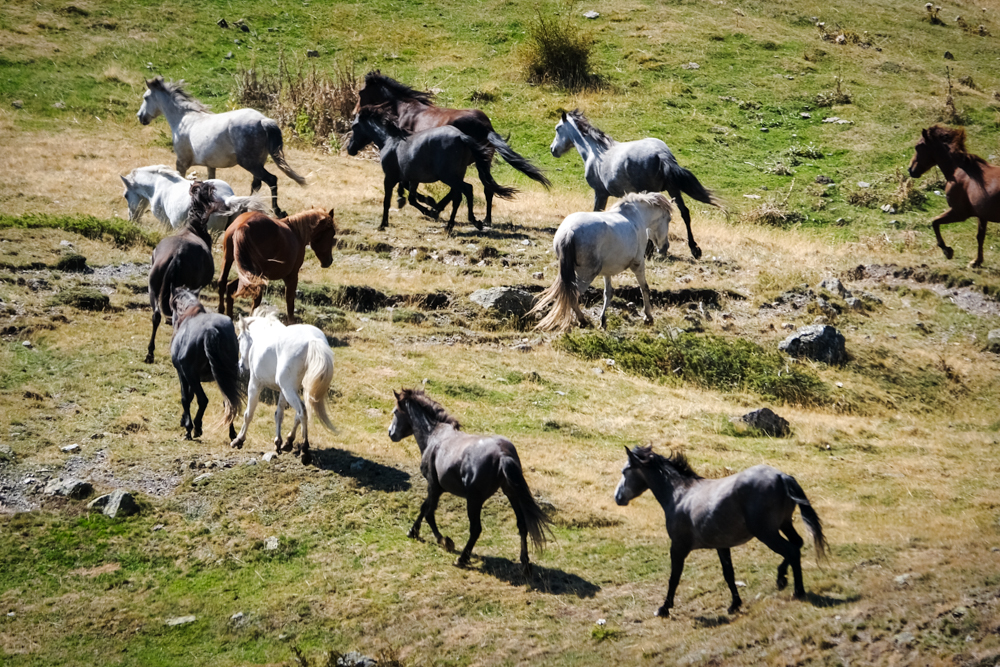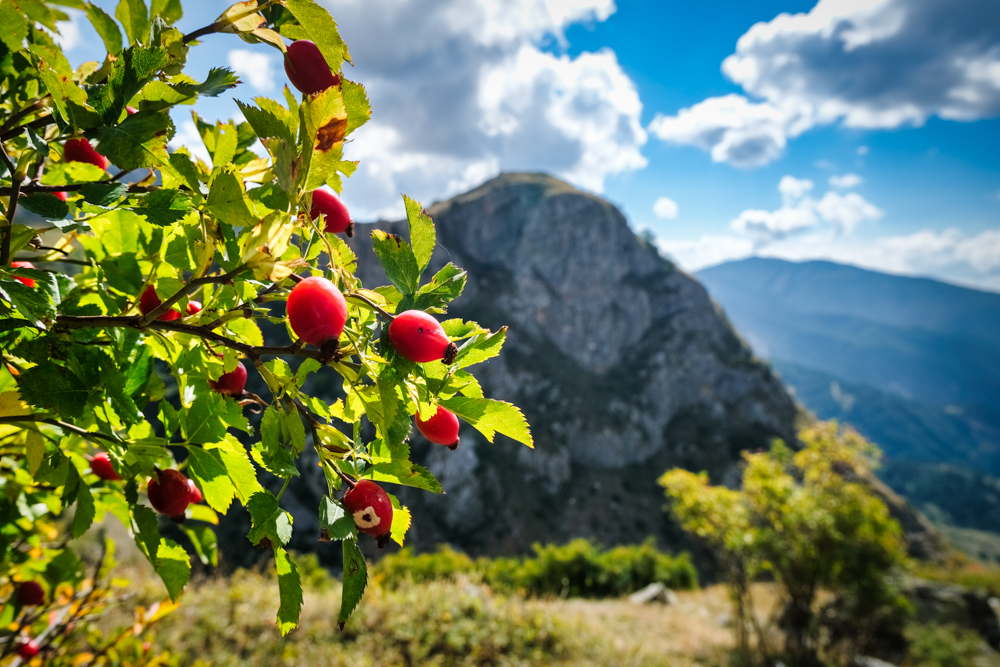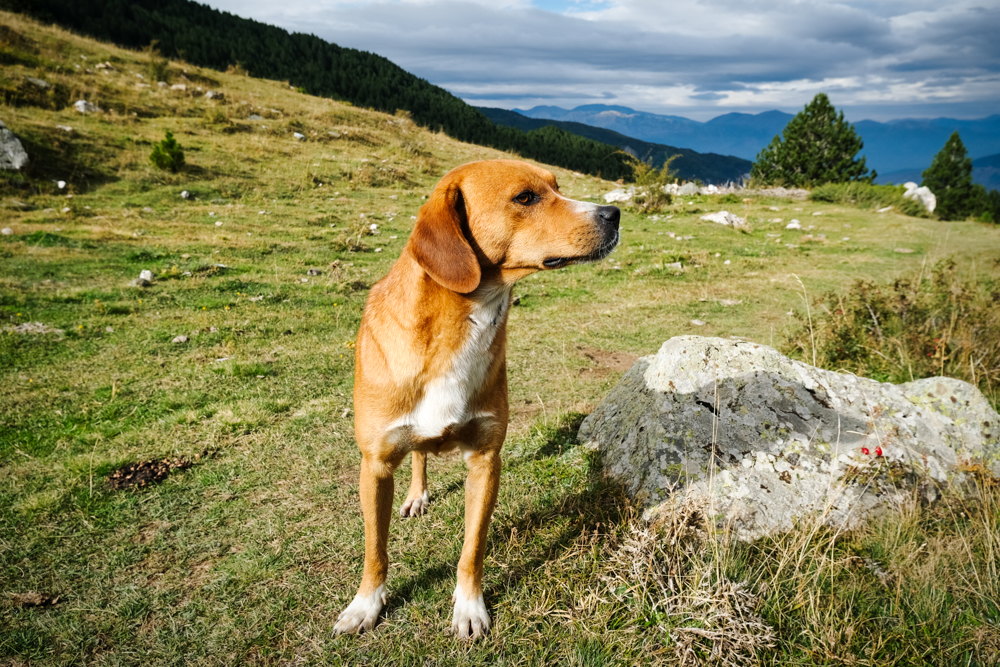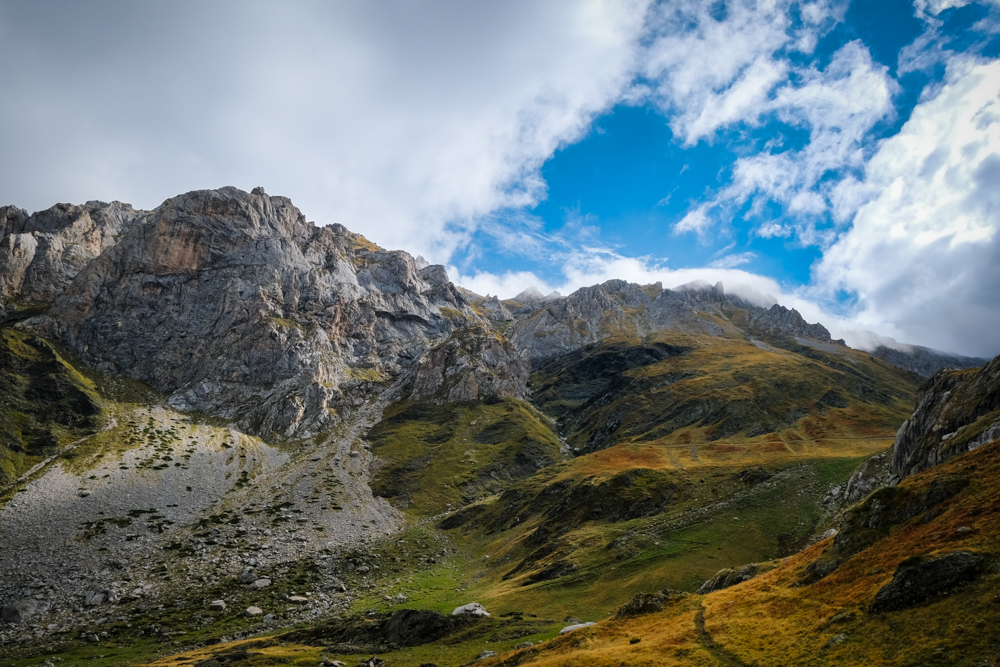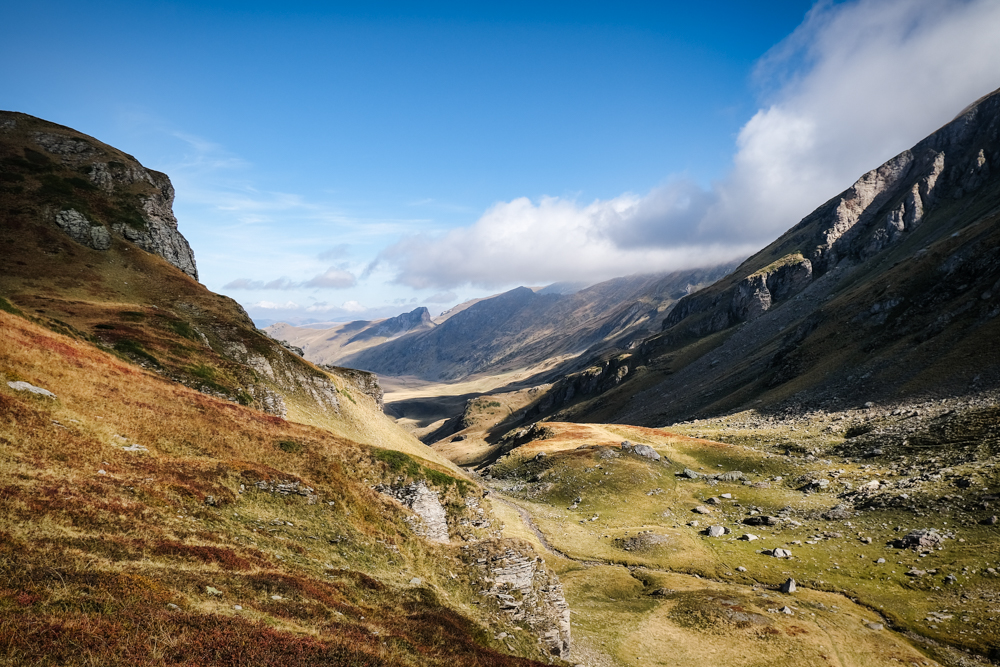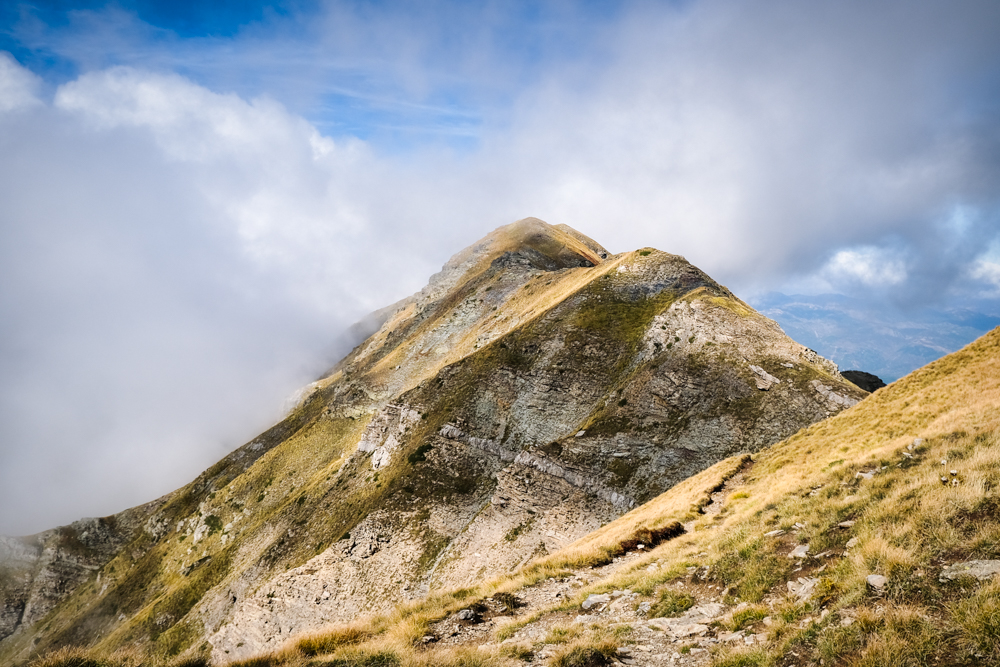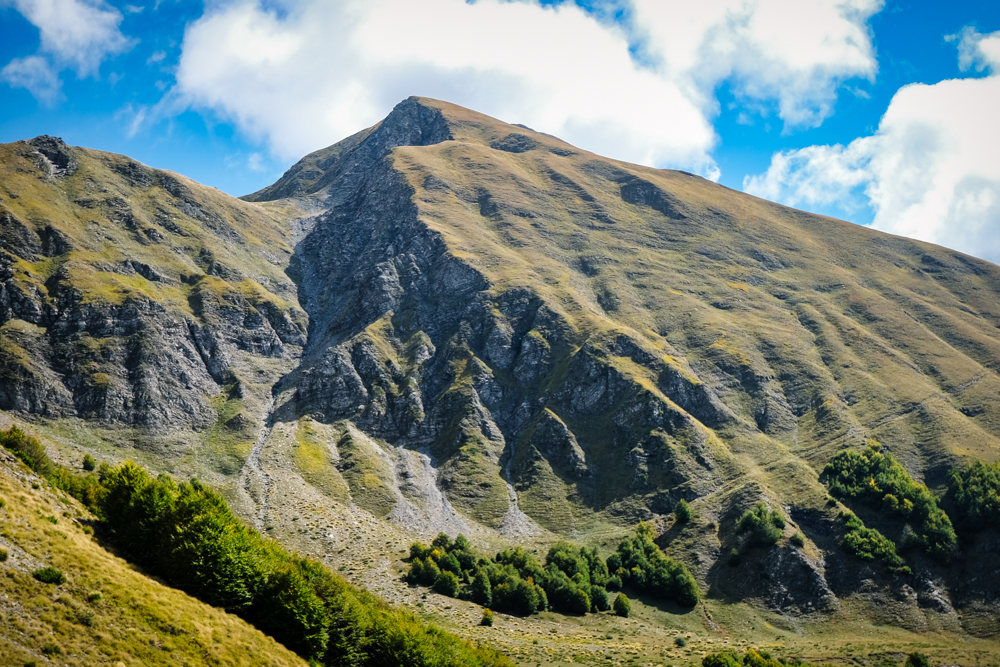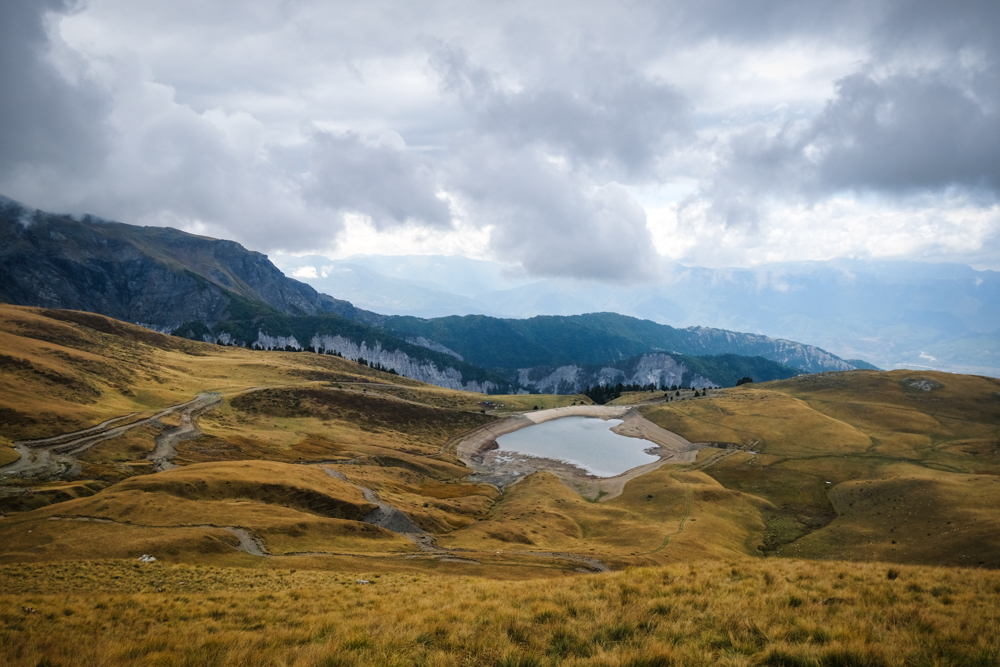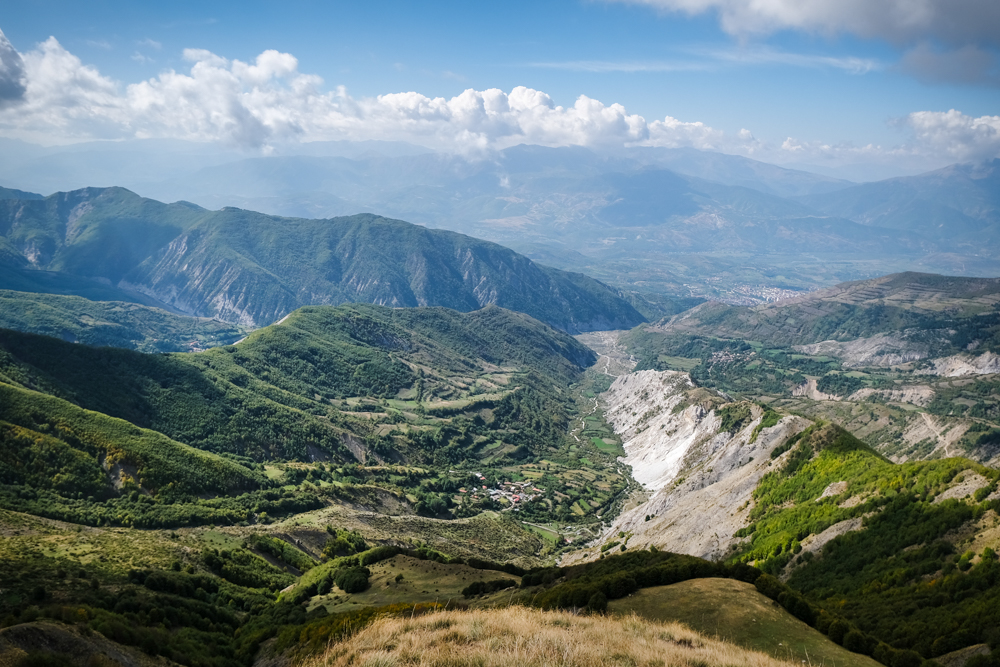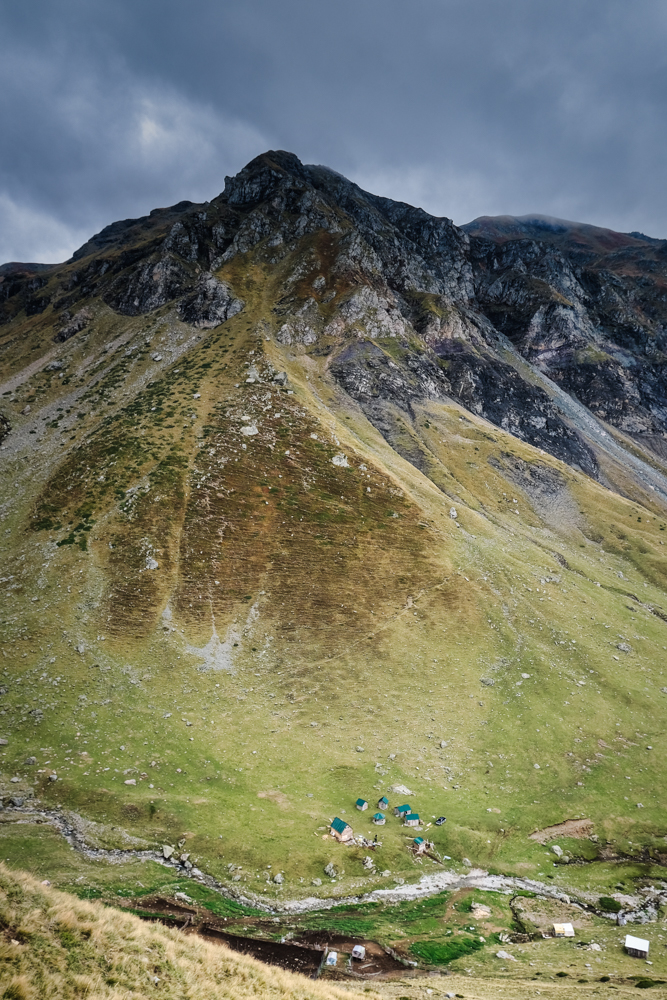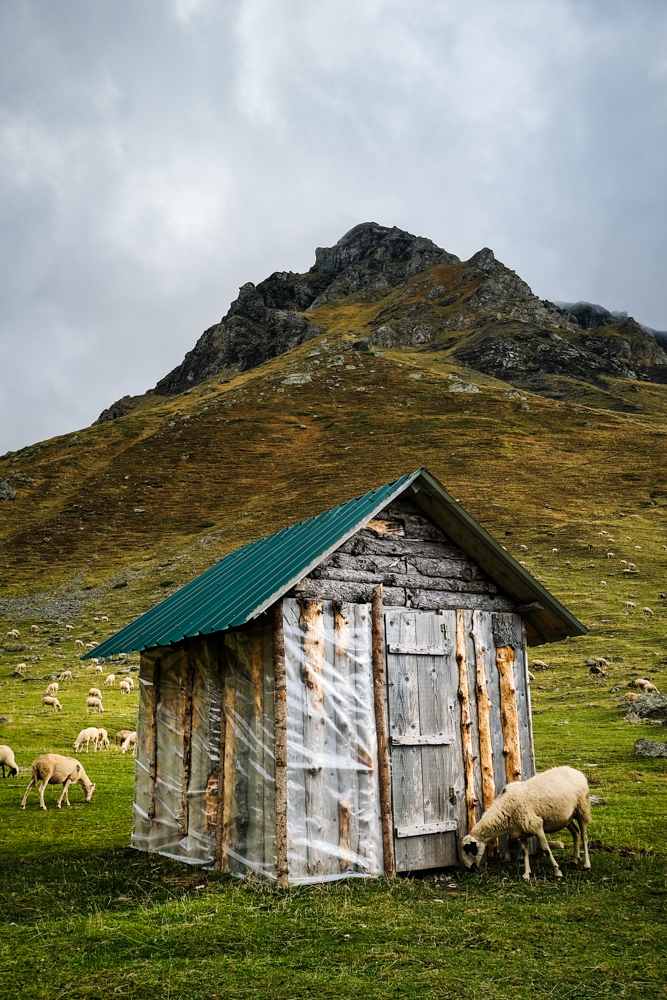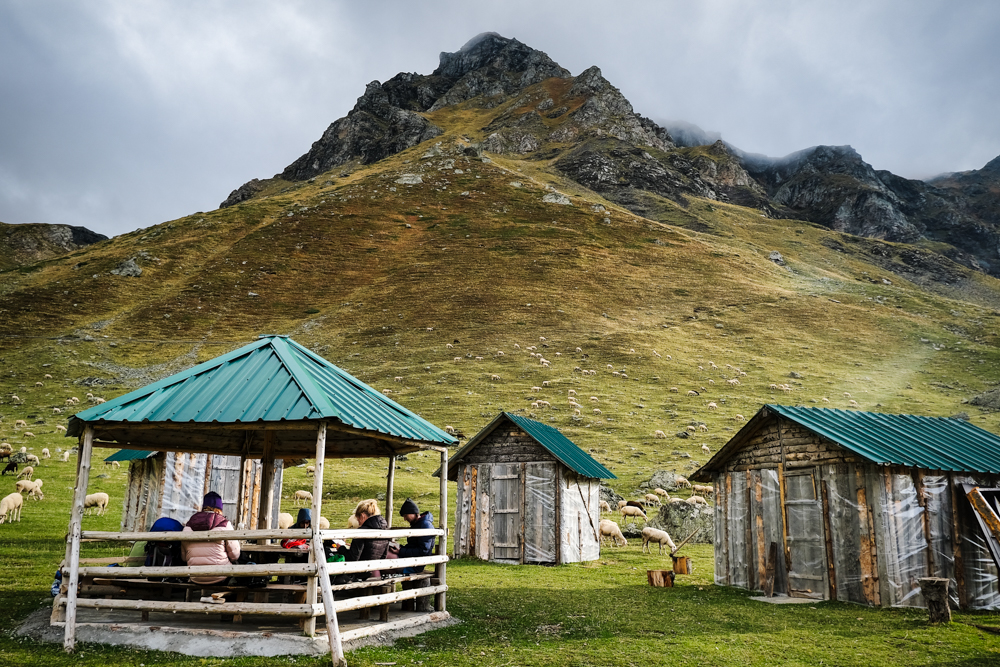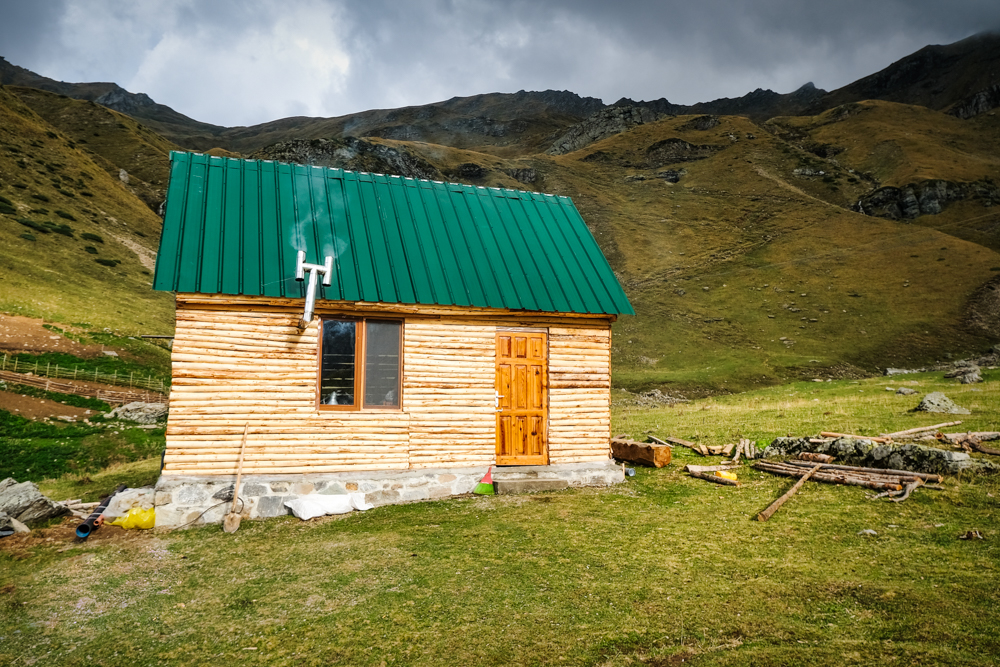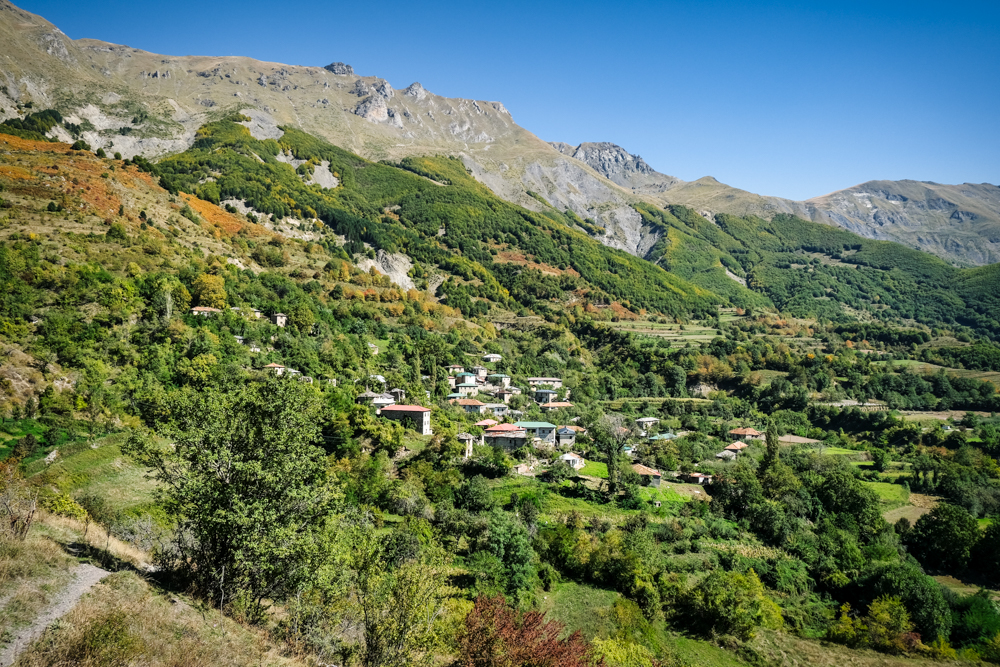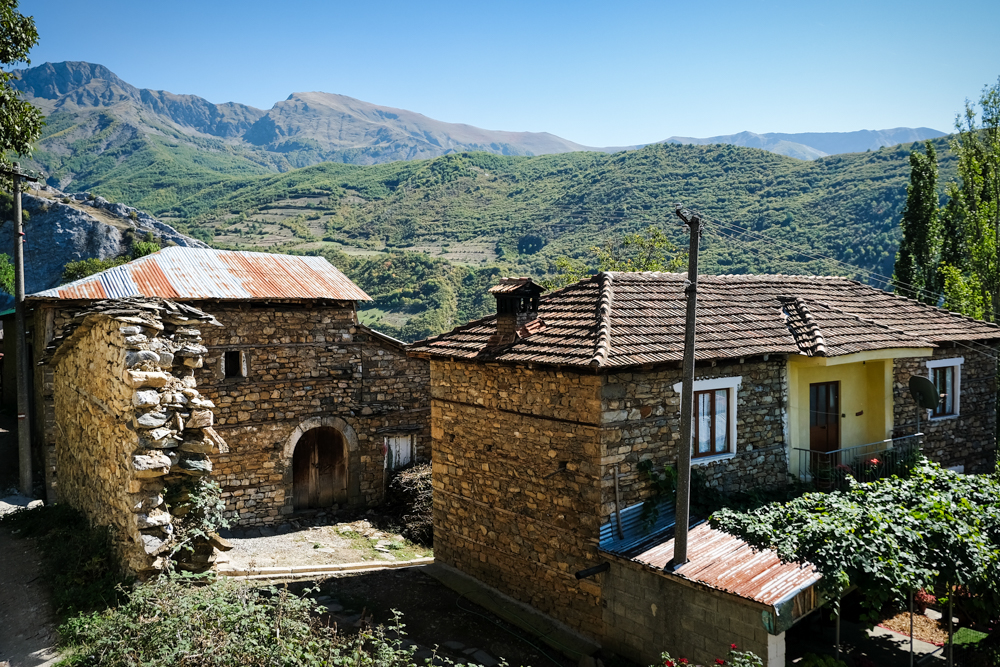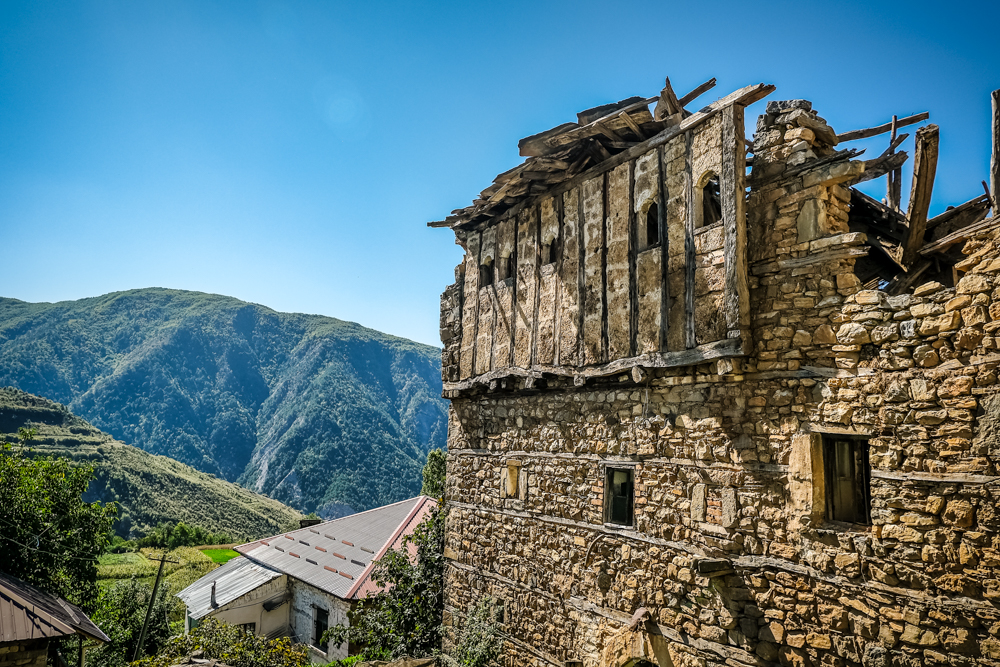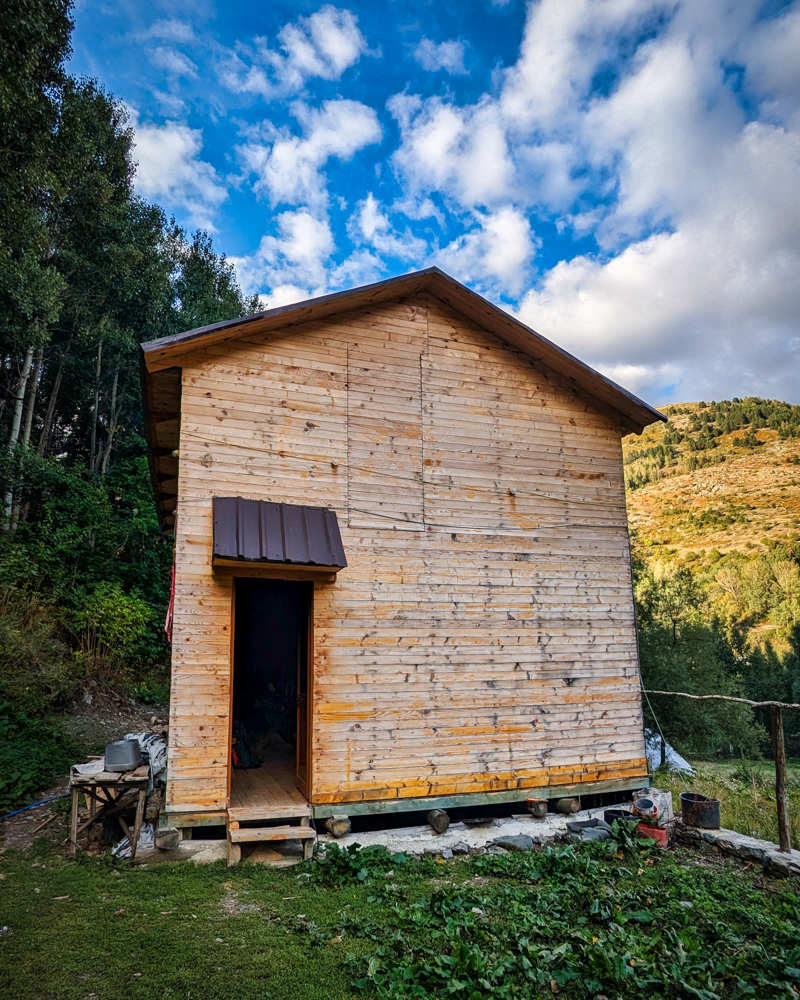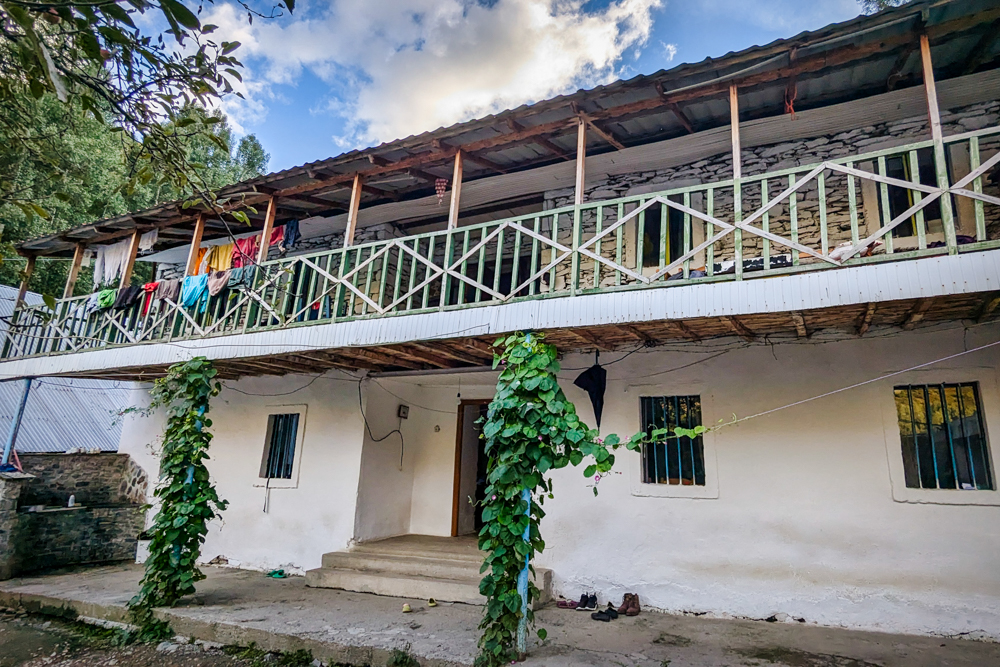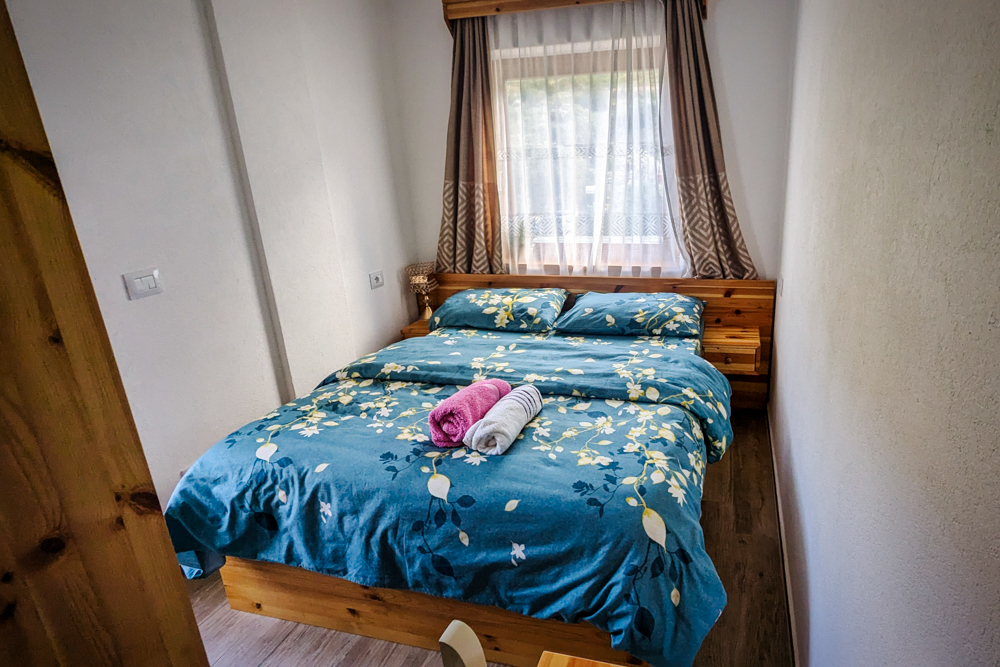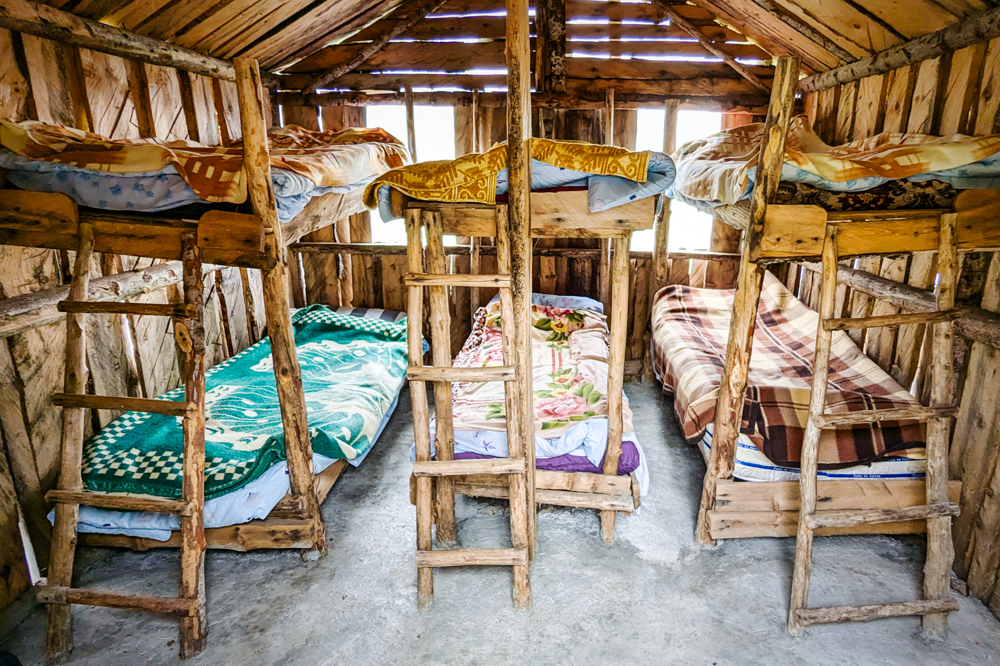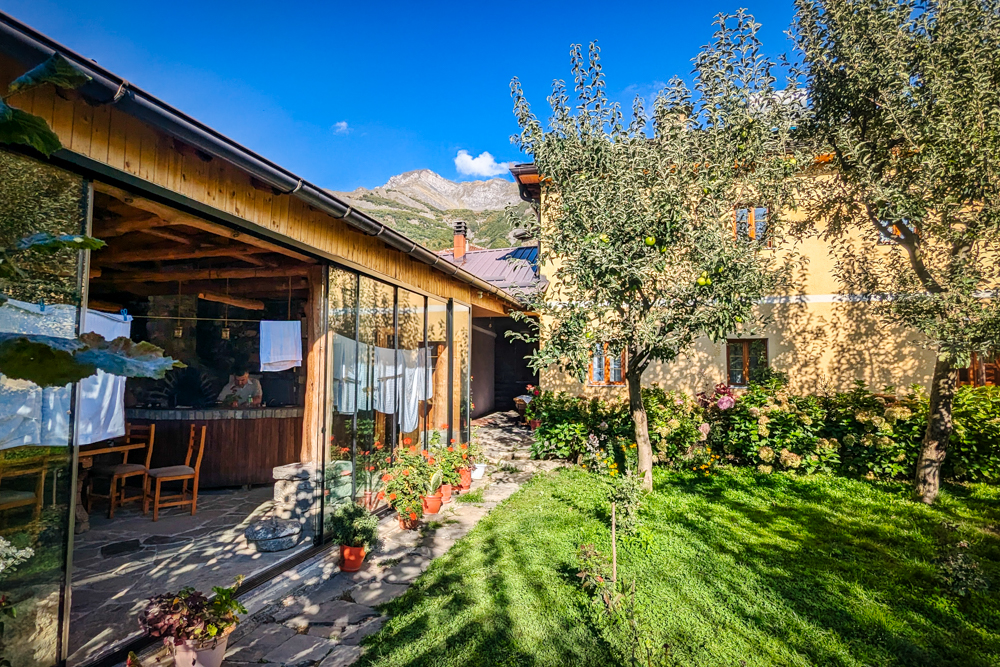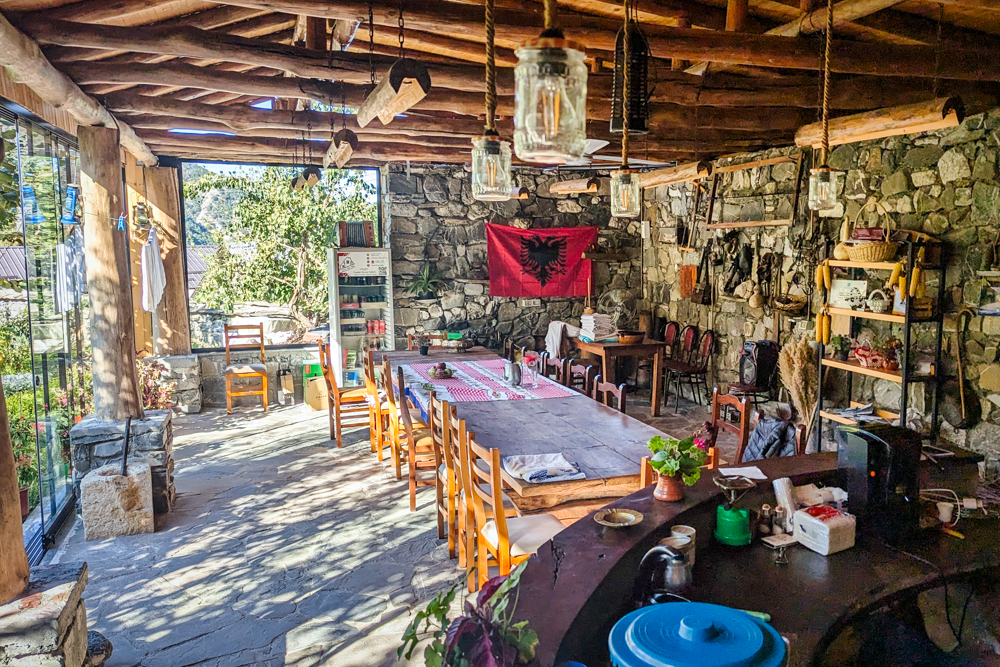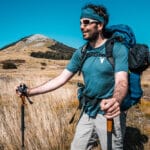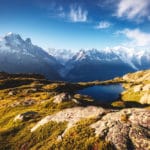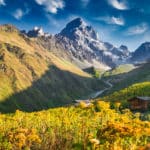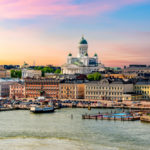The High Scardus Trail in Albania is a wild alternative to the well-trodden Peaks of the Balkans Trail. Here’s all you need to know
“Welcome to Hotel Radomirë Korab,” Agron greets me with an enormous smile as I arrive at my lodgings. It’s the end of my second day on the High Scardus Trail and I am in dire need of a drink. “Can I get you a beer?” he adds, clearly reading my mind.
Over the years, I’ve met people all around the world who could very well be running multinational companies had they been born elsewhere. There was Werry at Port Resolution Yacht Club on Vanuatu’s Tanna Island, Josie the receptionist at Poseidon Dive Centre in Colombia’s Taganga and Amirico, a guide on the Salkantay trek in Peru. All these people had an intelligence and ability that shone as bright as any graduate or executive I’ve met in the UK. Recently, in the tiny town of Radomirë in Albania, I met another.
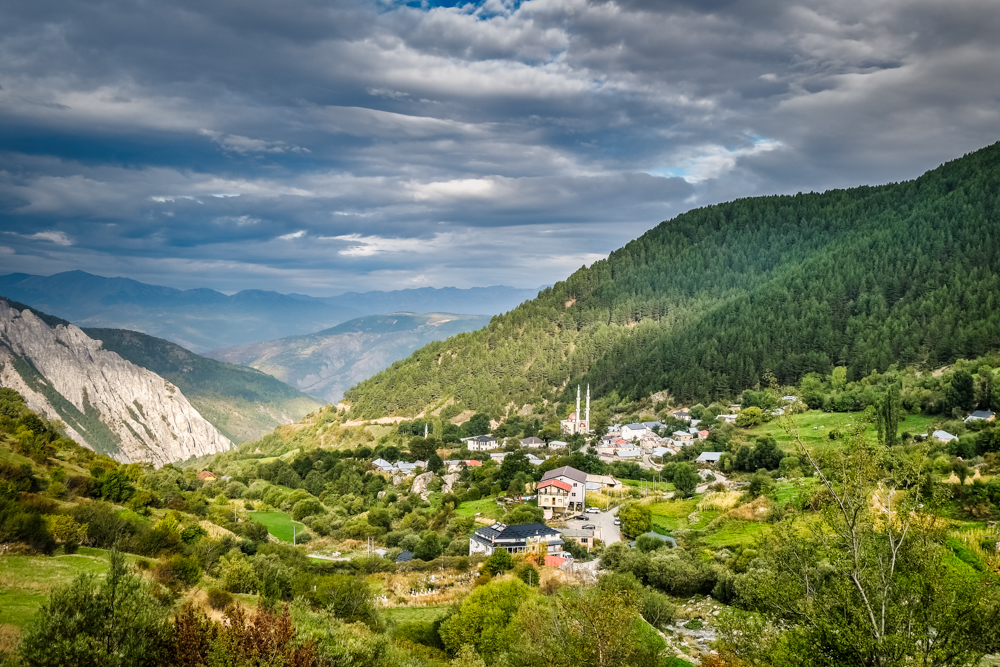
Agron used to be one of the 10 million Albanians living outside their homeland – an enormous number given that Albania’s population is just 2.4 million. The country has seen mass emigration since the end of communism in the early 1990s. During that time, authoritarian ruler Enver Hoxha effectively sealed the nation off from the outside world for decades.
Agron moved to the UK when he was just 15. He came with no English but learnt a trade (carpentry) and worked for nearly a decade in London. Still a young man, he recently returned to the family home in Radomirë where his family run a small café serving coffee and beer. The café is still the heartbeat of the village but above it, he’s built two floors of guest rooms which hikers use as a base to climb Mt Korab, the country’s highest peak.
“I loved the UK,” he tells me one evening as he looks up the valley toward Korab. “But, eventually, I wanted to come back to my family and with this new trail opening, the timing was perfect.”
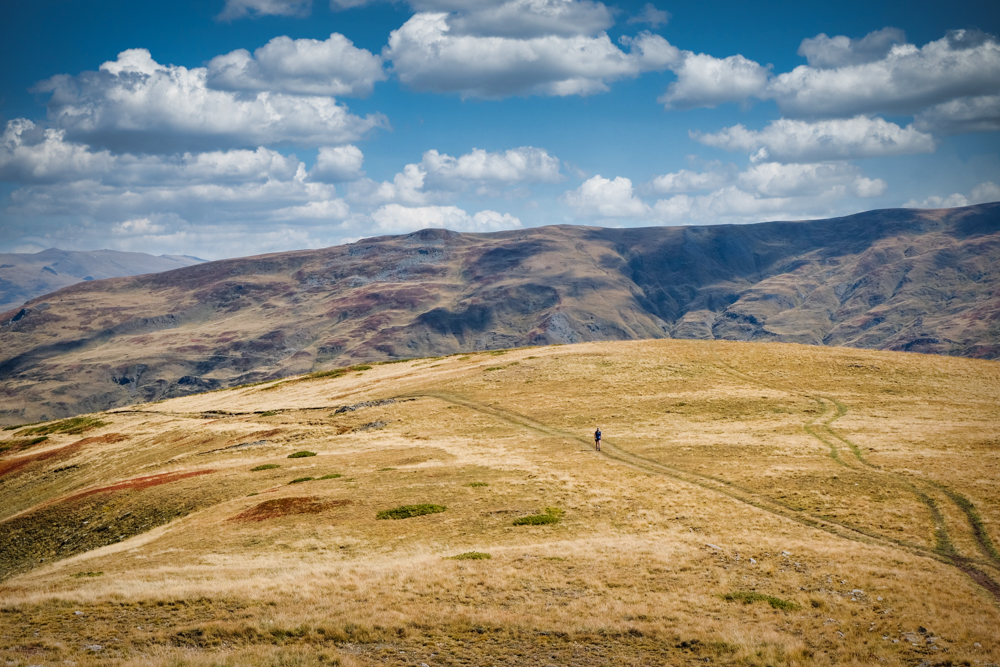
Agron has worked wonders since his return. His hotel is the most comfortable lodging along the trail with warm service, hot showers, fast wifi, a superb restaurant and all the strong coffee and cold beer you could want.
Agron could indeed be running a multinational somewhere, but I expect he’s pretty content where he is – and who can blame him? He lives at the foot of a mountain in one of Europe’s least-explored landscapes – a location many CEOs would pay millions for. I think Agron’s the one who’s winning in life.
Introducing the High Scardus Trail
I was initially planning to trek the Peaks of the Balkans Trail, a classic circular trek through the borderlands of Montenegro, Albania and Kosovo. I had done my research, bought my guidebook and was ready to book flights when I reached out to Ricardo, co-owner of Zbulo! Discover Albania who organise guided and self-guided treks throughout the Balkans.
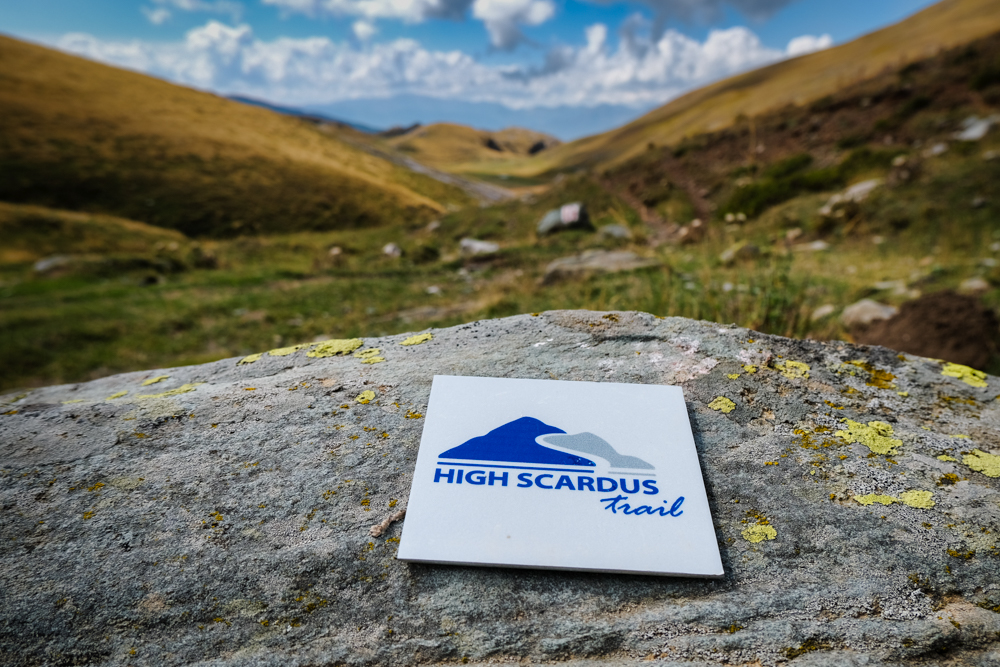
On hearing my level of experience, Ricardo told me about the High Scardus Trail, a recently developed and award-winning trail through a relatively unknown region of the Western Balkans. Ricardo was keen to stress that the once unknown Peak of the Balkans Trail was now in danger of overtourism. He estimates that for every hiker on the High Scardus Trail, there are around 500 on the Peak of the Balkans Trail.
With that in mind, I leapt at the chance to explore the quieter ranges of Albania’s Western Balkans via an eight-day, self-guided trek of the High Scardus Trail, part of the longer 362km route through the borderlands of Kosovo, Albania and North Macedonia. And quiet it was. These proved to be some of the least visited mountains in Europe.
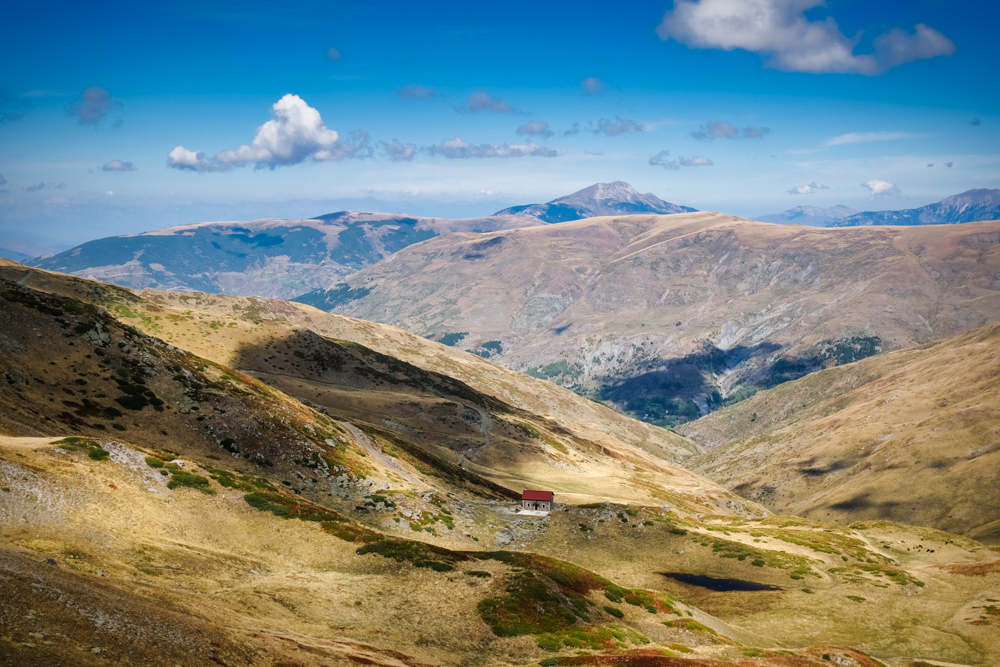
As I had booked onto a self-guided trek, I was expecting to be hiking alone. However, I soon met a group of four other hikers who were on the same itinerary as me so we fell into step together. Other than my new trek mates, I counted fewer than 20 other hikers during my entire six days of trekking! Instead, I met hundreds of sheep, a dozen sheepdogs and a herd of wild horses.
Into the Western Balkans
The trail begins by winding through the glacial valleys and alpine meadows in the borderlands of Albania and Kosovo, just a short drive from the small border city of Kukës, the first ever nominated for a Nobel Peace Prize for its role in sheltering over 400,000 refugees during the Kosovo War.
The first day is a relatively easy-going hike to the summit of Mt Kallabak (2,174m) sitting on the border of Albania and Kosovo. From there, the trail descends to the tiny village of Çajë where hikers are welcomed at a modest homestay for the night.
The second day continues over a high ridgeline past scores of communist-era bunkers. During the Cold War, Albania’s dictator Enver Hoxha convinced the country that the outside world wished to overthrow their communist state. The result was an estimated 500,000 bunkers dotted across the country’s landscape.
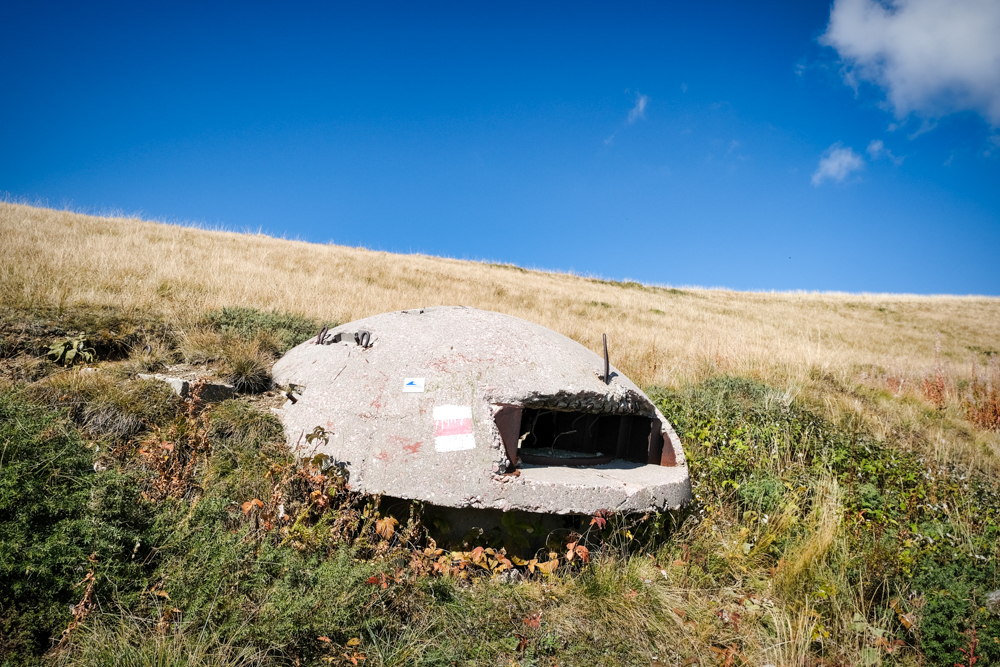
In the highlands of the Western Balkans, these bunkers now serve as handy trail markers while wild horses, flocks of sheep and cattle roam the surrounding hillsides. Occasionally, they act as shelters for semi-nomadic shepherds guarding their livestock from native bears and wolves.
To the summit of two countries
The second day finishes at the tiny town of Radomirë, a popular base for hiking Albania’s – and North Macedonia’s – highest peak, Mt Korab (2,764m). I spent two nights here doing just that at Agron’s comfortable pension.
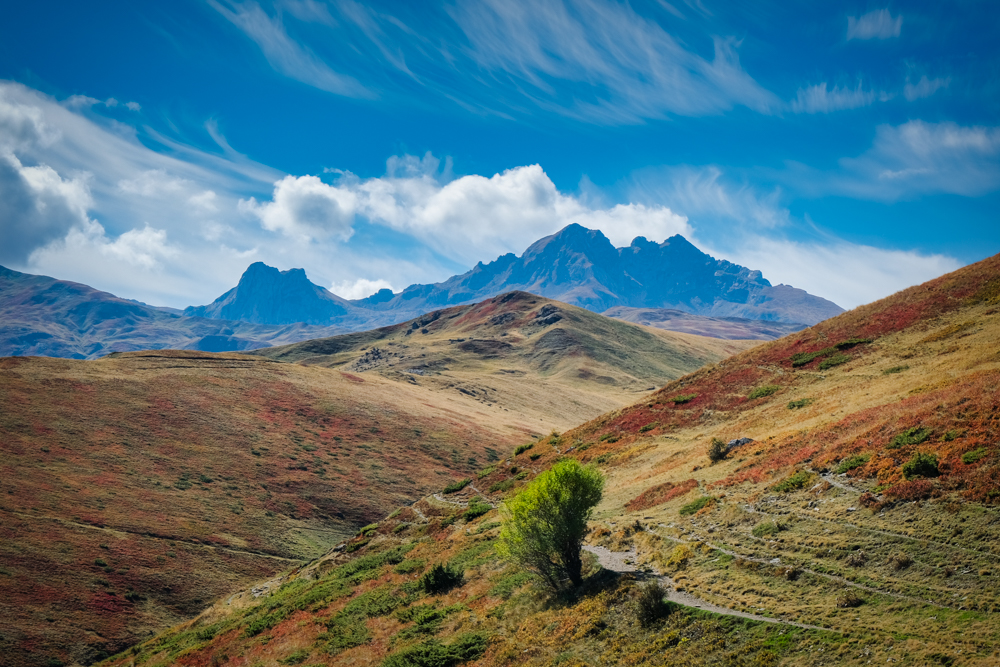
Popular is not quite the right word for the trail to the top of Mt Korab. Certainly, it was the busiest I had seen on the High Scardus Trail but it was far from crowded. Our group only encountered a handful of other hikers throughout the day, most of them day-hikers visiting Radomirë just to climb Mt Korab.
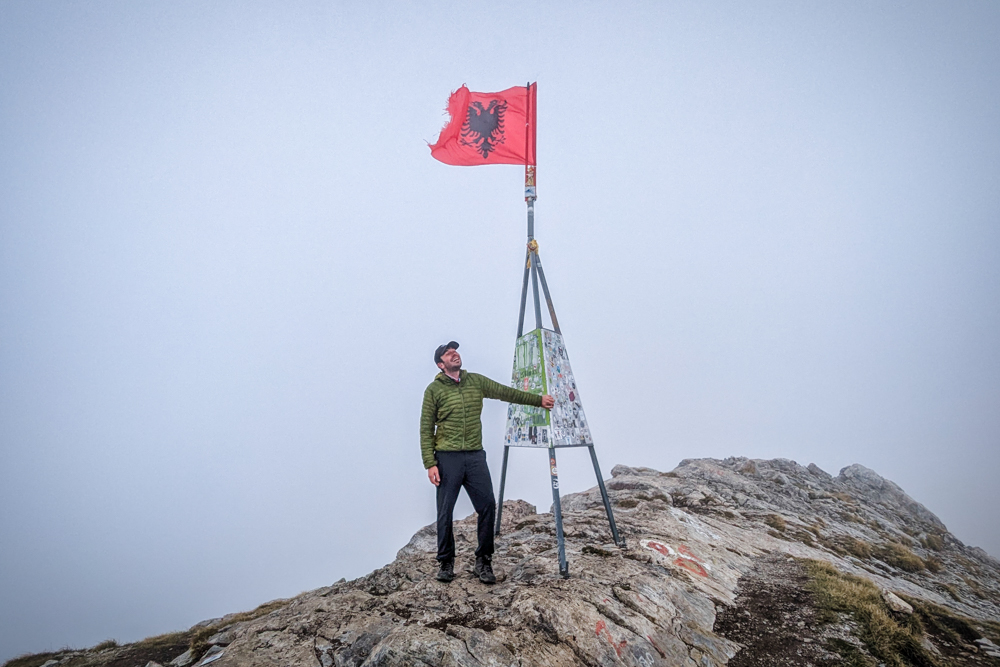
It is a long day to the summit of two countries and to add to the challenge, the weather had changed. Thick fog had rolled in, bringing a chill to the air along with an occasional shower. The day is the most varied in terms of terrain as the trail rises sharply, passing over streams, through woods and across wide, grassy pastures before circling the mountain and following a ridge along the border to the summit. A flagpole flying the Albania flag marks the highest point.
Unfortunately, the weather meant the dual-country, panoramic views the peak is famed for were not on offer. Instead, it was a whiteout in every direction. Fortunately, I’d seen much of the scenery during the previous two days of approach. Fortunately, during the descent, the skies cleared revealing Korab’s jagged ridgeline.
Balkan hospitality
The fourth day is a steady climb out of Radomirë and over Grama Pass to a wide glacial valley where a lake makes a perfect picnic spot. From here, the trail descends steeply to the Ladies’ Pastures at 1,770m. Here, the shepherds of the Kaloshi clan welcome hikers to a modest cluster of wooden huts. On arrival, our group was welcomed with cups of strong coffee before we dug into a hearty meal followed by an evening around a roaring campfire.
There is no phone reception, wifi, electricity or hot water at the Ladies’ Pastures. But what the makeshift hamlet lacks in home comforts, it makes up for in charm and setting. The surroundings are stunning and the views from the nearby escarpment were the most sensational of the trek.
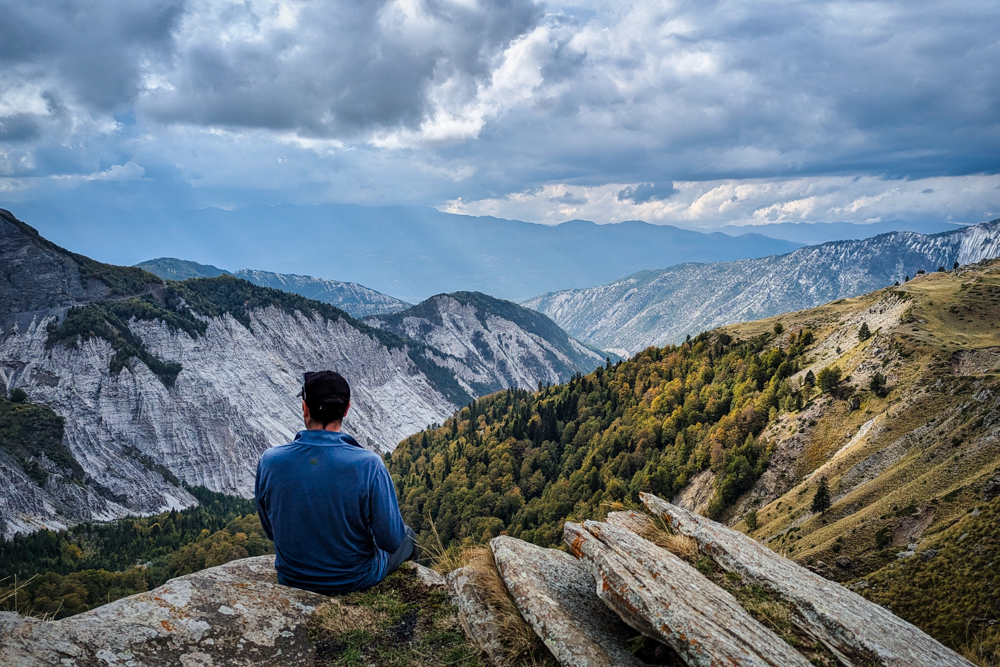
The penultimate day of hiking begins with a steep ascent and descent into the adjacent valley, followed by an undulating track that follows the contours around a spur before gradually dropping into the quaint village of Rabdisht.
Here, trekkers are welcomed to a charming guesthouse run by the eccentric Sabri and his wife, Festa. Sabri took our group on a short tour of the village which included dropping into a neighbour’s for a glass of raki. Afterwards, we returned to the guesthouse where we – along with their other guests – were served an enormous meal, more raki and encouraged to dance around the table to Albanian folk music.
The final day is a relatively short amble around the tiny villages dotting the landscape. As such, we rose late, ate a hearty breakfast and said our goodbyes to Sabri and Festa. With only 12km to cover and little ascent, we took our time on a circuit of the valley, dropping in and out of remote, sleepy villages. We met our transfer at the hamlet of Bellovë and within three hours were in buzzing Tirana, showering off the dust and heading out for a celebratory meal.
The High Scardus Trail is a unique trek which leaves you with memories that will stay with you long after the journey. Mighty horizons, sheepdogs and forested slopes. Conversations with an expat now back where he belongs. Great hunks of sheep’s cheese for breakfast, lunch and dinner. A tatty red flag fluttering at the top of two countries. And dancing around a dinner table, flushed from raki and not caring.
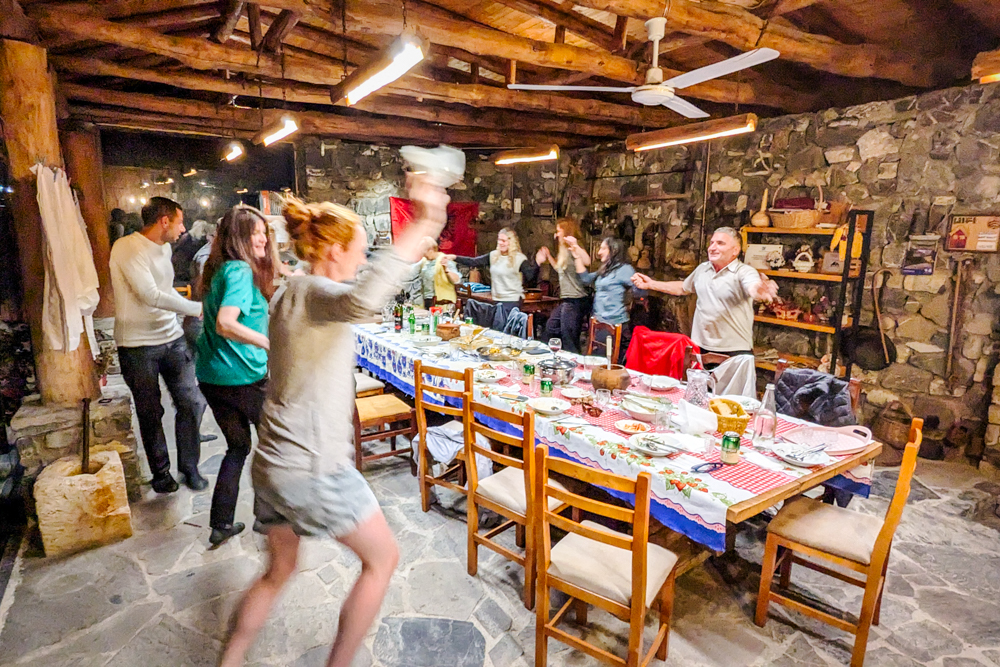
Itinerary
Start/finish: Tirana/Tirana (trek begins near Kukës and ends in Bellovë)
Distance: 92km
Duration: 8 days (six days of trekking)
Max. altitude: 2,764m (Mt Korab)
Total ascent/descent: 5,725m/6,425m
| Day 1 |
| Start/finish: Tirana – Kukës Distance: n/a Duration: n/a Ascent: n/a Descent: n/a |
| Day 2 |
| Start/finish: Kukës – Çajë Distance: 16km Duration: 6-7 hours Ascent: 725m Descent: 1,000m |
| Day 3 |
| Start/finish: Çajë – Radomirë Distance: 17.5km Duration: 7-8 hours Ascent: 1,000m Descent: 1,075m |
| Day 4 |
| Start/finish: Radomirë – Radomirë Distance: 17km Duration: 7-8 hours Ascent: 1,550m Descent: 1,550m |
| Day 5 |
| Start/finish: Radomirë – Grama Alp Distance: 15km Duration: 6-7 hours Ascent: 1,025m Descent: 600m |
| Day 6 |
| Start/finish: Grama Alp – Rabdisht Distance: 15km Duration: 6-7 hours Ascent: 600m Descent: 1,550m |
| Day 7 |
| Start/finish: Rabdisht – Bellovë – Tirana Distance: 12km Duration: 4-5 hours Ascent: 700m Descent: 750m |
| Day 8 |
| Start/finish: Tirana – Depart Distance: n/a Duration: n/a Ascent: n/a Descent: n/a |
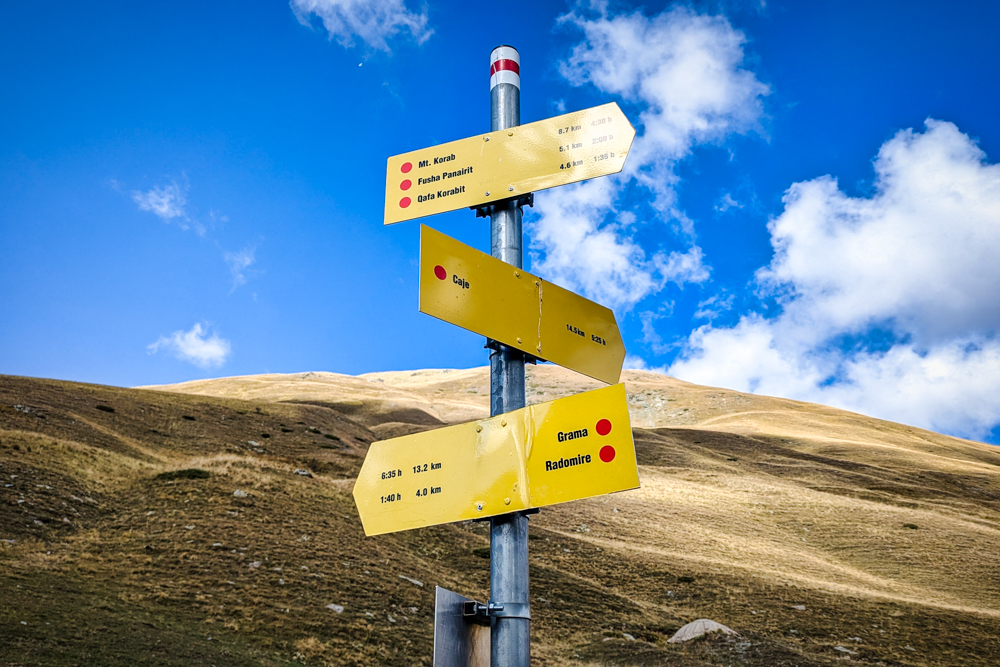
High Scardus Trail Route map
Before the trek, Zbulo provides a GPX file for you to download onto your navigation device or to run on your preferred hiking app. At the beginning of the trek, you are also provided with a GPS device with the map preloaded as well as a roadbook with detailed route descriptions for every section.
The essentials: trekking the High Scardus Trail in Albania
What: Trekking the High Scardus Trail in Albania.
Where: The trek includes seven nights of accommodation. The lodgings range from comfortable hotels and pensions to more rustic shepherds’ huts and homestays. Hotels include the first night in Kukës and the final night in Tirana while the two nights midway through at Radomirë are in a comfortable pension. There are two nights in more basic lodgings – one at Çajë where you’ll be in a shared converted barn and one in shepherds’ huts at Grama Alp. The final night in the mountains is at a charming guesthouse complete with apple orchards and the eccentric Sabri and his wife, Festa. Only the shepherds’ huts at Grama Alp do not have hot showers.
Below are links to the various accommodations although some, particularly the first and last nights, can vary depending on availability in Kukës and Tirana.
- Oda Kuksit, Kukës, hotel, 1 night
- Bujtina Musaj Çajë, Çajë, homestay, 1 night
- Hotel Radomirë Korab, Radomirë, pension, 2 nights
- Korabi Mountain Camping, Grama Alp, shepherds’ huts, 1 night
- Sabri Shahini, Rabdisht, guesthouse, 1 night
- Vila Tafaj, Tirana, hotel, 1 night
When: The best time to trek the High Scardus Trail in Albania is between June and September as the mountains will be largely snow-free. Zbulo runs guided and self-guided treks throughout this period. It is still possible to go in early October but the weather is getting noticeably colder and less consistent. For quieter trails and to avoid the heat of high summer, we recommend the shoulder seasons of June and September.
How: I joined an eight-day self-guided trek of the High Scardus Trail with Zbulo Discover Albania. The trek includes all guiding materials including maps of every stage, a roadbook with detailed route descriptions, a GPS device and a backup phone in case of emergency.
The trek also includes seven nights of accommodation; all breakfasts, six lunches and five dinners (you only have to cover the first evening meal in Kukës and the last in Tirana); transfers to and from the airport; all luggage (up to 15kg) transfers between accommodations; and all entrance fees, trekking and border crossing permits.
Prices for an eight-day self-guided trek of the High Scardus Trail start at €925. You should budget to spend an additional €60-90 on food and drinks during the trip.
Equipment: Zbulo provides a detailed packing list well before your departure along with lots of other tips and useful information. Make sure you have suitable hiking boots, cold-weather clothing and waterproof clothing as well as your favourite snacks. While bedding is supplied at all accommodation, it’s a good idea to take a sleeping bag for the nights at the homestay and shepherds’ huts.
Editor’s picks
For this trek, we recommend the following kit.
- Walking boots: Lowa Renegade GTX
- Waterproof jacket: Mountain Equipment Makalu
- Backpack: Osprey Daylite Plus Pack
- Sleeping bag: Rab Neutrino Pro 700
- Duffel Bag: North Face 42l
- Water filter: Grayl GeoPress Water Filter or Platypus QuickDraw Microfilter System
- Trekking poles: Leki Khumbu Lite
- Sim card: Holafly eSIM for Albania
- Insurance: TrueTraveller – you’ll need the Extreme Adventure Pack for trekking the High Scardus Trail.
Moving on: Tirana is well-connected via bus to various domestic and international destinations including Durrës, Saranda and Korçë in Albania, Pristina and Prizren in Kosovo and Skopje and Ohrid in North Macedonia.
Access: I flew to Tirana in Albania from London with Ryanair but there are several carriers available. Book via Skyscanner for the best prices.
Sim card: We recommend getting a Holafly eSIM for Albania so you can stay connected to the internet on your trip. We can offer our readers 5% off all Holafly purchases. Simply use the code ATLASANDBOOTS at checkout.
Enjoyed this post? pin it for later…
